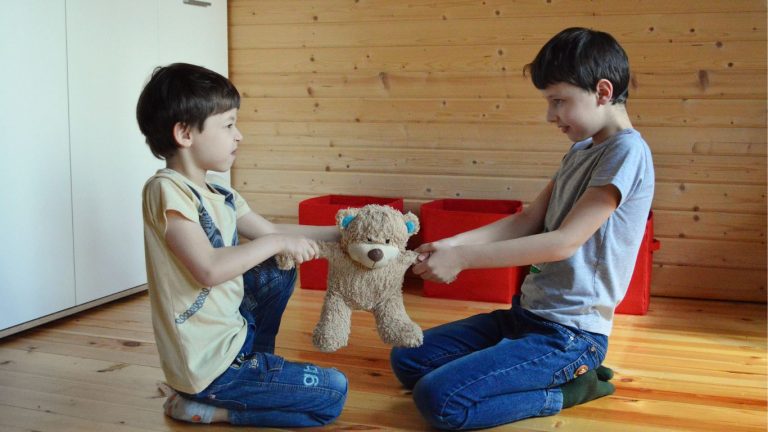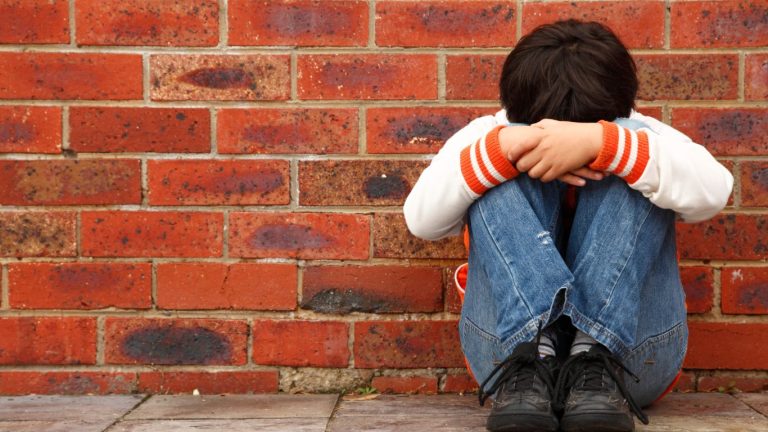Most parents are equipped to get through the inevitable tantrums and meltdowns of little kids. As children grow they gain patience, develop more skills, learn problem solving and then low and behold the tantrums subside. Or they don’t. Read on to learn all about anger management tips for kids.
For some children the anger or explosiveness only gets worse as they age. It was one thing when they were 15kg and stomping their feet, but now they’re bigger and can hurl a chair across the family room.
There seems to be real rage in their bellies. Scratch the surface and BOOM -– they go off. The frequency, intensity and duration of these episodes goes beyond the explanation that your kid is simply having a bad day.
If you have a child who is destroying property, physically attacking others or repeatedly berating themselves, take matters seriously. Here are some ways you can deal with the situation.
Anger Management For Kids: Tips For Dealing With Explosive Children
Educate Yourself About Anger Management
Anger is called ‘the fighting emotion.’ We activate our anger when we want to go to battle to fight and win. The fight, flight, freeze (F3) response in our nervous system kicks in, which increases our heart rate, sends blood to the muscles so they are stronger and accelerates our breathing so we are good and oxygenated.
These massive bodily sensations are enough to overwhelm a child. It’s a big biological event that can even feel scary -– like they are out of control.
Anger is actually a secondary emotion. Your child feels another emotion first, which is the primary emotion. And that is the one you need to discover and learn from. It’s likely one of these five triggers:
1. Threats to self-esteem (rejection, victimisation, rights removed or infringed on) that come from these common childhood experiences:
- The feeling a sibling is preferred
- Inconsistent enforcement of rules (this is not fair!)
- Public correction that embarrassed or humiliated them
- Offering help or instruction when it wasn’t needed (micro-management) Seeing an injustice done to another
- Loss of sense of control or a sense of autonomy
- Lack of understanding of others (low empathy)
- Others reject or deny what the child is genuinely feeling (misunderstood)
2. Biology: hunger, low blood sugar, tired, in pain
3. Stress/Anxiety (illness, impending divorce, moving schools, new caregiver, upcoming test)
4. Sadness (due to death or big change in their life)
5. Frustration (communication problems, lack of dexterity or knowledge, perfectionism and hatred of mistakes, believing that asking for help is failure or inadequacy)
If you can identify and solve the primary feeling, your child’s need to fight with anger would not be necessary.
Basic Health Check
Double check your child is eating well, sleeping sufficiently (do they snore? Could it be undiagnosed sleep apnea?) and reduce their stress.
Are they over-scheduled? Are they feeling undue pressure to excel? Parents are notoriously blind at seeing childhood stressors but they abound.
During a Blow Up, Be Calm and Empathetic
It’s very easy to get pulled into a child’s state. Instead, you have to act in calming ways to help her de-escalate.
It’s very easy to look fed-up and roll your eyes. You are so tired of their antics. But a cold, terse composure that is meant to brace yourself for the storm only adds fuel to her fire.
Instead, communicate calm, loving support. Watch your body language. Keep your tone sweet and quiet. Your facial expression should be one of empathy and compassion.
If they will allow you to offer comfort touches (rubbing their back or a hug), do it. Show that you understand they must be deeply upset to be this angered, but keep your words sparse. Give them space and time to re-group.
Keep a Log Book
Write a log after each blow up. Record the events leading up to the angry outburst and how it finally resolved. Be sure to record not only what your child did — but also what you and others did.
Assign an intensity rating from 0 to 10. Watch the clock to see how long the blow up lasted and record that, too. After a week or a month, can you see a theme?
As you embark on making changes, you’ll want to know things are improving. The blow-ups won’t go away over night, but if they are less frequent, less intense and shorter then you are making headway! Don’t give up too soon.
Talk About Triggers In A Time Of Calm
When children are angry, it is not a good time for productive discussions. You’re best to save your talks for a time when she is calm. Re-visit the incident that made them so mad and ask them to help you understand what was so distasteful that got them so angry. Then listen.
Listen with a goal of understanding your child and their perspective. Don’t defend or correct.
For example, if your child shares: “You let Bella go on the iPad first. She always gets to go first”. Instead of correcting and defending yourself with “that is not true, you went first last time” simply acknowledge their feelings and beliefs.
“So you feel you get passed over for your sister all the time? That I give her more privileges than you? Like going first on the iPad yesterday? Is that right? Well that would not feel very good at all! If I thought that, I would be hurt and hopping mad too!”
Proper Modelling
Children need to learn that using aggression is not the best way to resolve issues. If you use anger as a means to get your child to listen or behave, stop immediately. You are modelling this behaviour and he is imitating you.
Teach Problem Solving
Teach your child how to solve the problems he is having through positive means. “Besides getting mad, how else could you share that you feel unfairly treated, and how else could we assure that each child gets their turn going first on the iPad?”
Try to generate a few solutions: alternating days, mark turns on the calendar, leave a sticky note on the iPad saying whose turn is next, rock paper scissors, roll dice, etc. Decide on one solution to try for a week and see if things improve. If they don’t, try another solution.
They Have Control Over Their Anger -– It’s A Choice
Children believe that other people make them angry and that they are just innocent victims of these strong emotions that take over their bodies. Teach your child about the fight, freeze, flight response so they can recognise when they are getting triggered.
Teach them relaxation techniques: breathing exercises, taking a warm shower, going for a walk around the block, listening to calming music, tensing and releasing their muscles.
Challenge Rigid Black-And-White Thinking
In a time of calm, help your child to challenge his own rigid thinking. Young children often see the world in black and white with no grey scale. Things are right or wrong, good or bad, always or never. It’s part of growing up to see more sides to things and add complexity to our beliefs.
“You are not either a good boy or a bad boy — you are just loveable you, wonderful the way you are.”
“Instead of rigidly thinking your sister is always beating you, you can choose to think an alternate softer thought: many times my sister gets her way, but sometimes I do, too.”
Encouragement and Praise
Children who get angry are discouraged and we need to help fill their bucket so they feel good about themselves and improve their relationships with others in the family.
Look for their strengths and share your appreciation for what they bring to the clan. Increase your positive interactions and have fun together. Notice their gentle side.
If things don’t improve, seek out the help of a family counsellor. You’d be amazed what a few sessions can do to improve matters.
Abuse and Anger
Something to raise before we complete this article is that there is a correlation between explosive anger and abuse. Whether it be sexual abuse, physical abuse, verbal abuse, or even self-abuse in the form of self-harm, or drug and alcohol abuse, etc. If your child’s behaviour has changed recently, or their anger has become even more explosive, or you just have a feeling that something ‘isn’t right’, trust your instinct. There are many resources in the community, often fully funded, and you can access them directly or via a referral from your GP. Just reach out. We have more information on sexual abuse support as well as bullying.
Anger Toolbox – The Anger Toolbox by Skylight Trust provides resources and links to anger management tools for parents.
For more expert advice on dealing with children’s behaviour, check out our Development and behaviour section.






